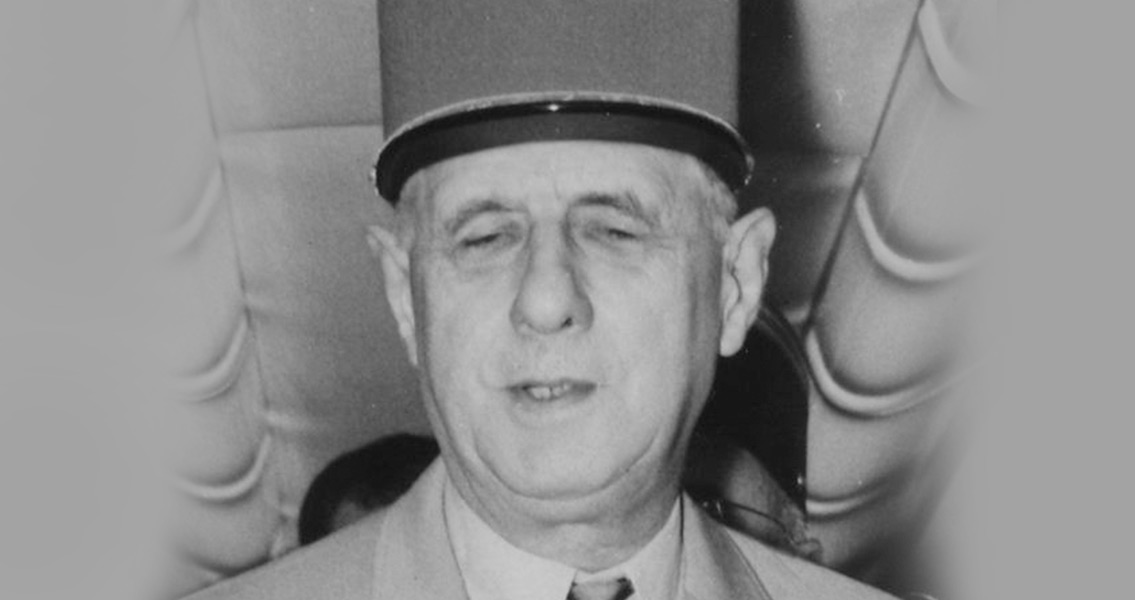<![CDATA[On the 13th November 1945, Charles de Gaulle was elected provisional president of the French Fourth Republic. The event was significant as it marked the return of the democratic process to France after years of German occupation and the Vichy Government. The following months and years however, would reveal a great deal about the changing face of politics in Post War Europe. It was no surprise that de Gaulle was elected the leader of the Constitutional Assembly. At a time when the French were reflecting upon their actions during occupation, de Gaulle was one of the country's few heroes from the war, and a proven leader. A highly respected soldier in the First World War, de Gaulle spent the 1920s and 30s campaigning for France to modernise its military. He condemned the ineffective Maginot Line, and highlighted France's lack of progress compared to its closest rivals. His campaign was largely ignored - de Gaulle may have been a hero of from a time of war, but in a decade of peace few people cared about his concerns. When war eventually broke out with Germany, France's rapid capitulation proved his fears correct. After Henri-Philippe Petain took over the presidency on 5th June 1940, de Gaulle realised the new Premier intended to sue for peace with Hitler. Knowing he would likely be arrested, de Gaulle fled to England, and issued a radio broadcast calling on the French people to continue resisting the German forces. Back in France, a court martial in Toulouse tried de Gaulle in absentia, and sentenced him to death. De Gaulle spent the next few years coordinating the Free France Resistance movements, and forming armed forces in French colonial territories such as Algeria. Following the Allied invasion of France, de Gaulle entered Paris a triumphant hero on 26th August 1944. From this moment the process of rebuilding France's government began in earnest. Soon after de Gaulle was made the provisional president of the Fourth Republic, it became clear that there would be conflicts between him and the major political parties. The first controversy took place when the new government set about creating a cabinet. De Gaulle was reluctant to allow communist politicians to take up roles as heads of important ministries, as he believed they were direct agents of the Soviet Union. Eventually a compromise was reached, and the communist's leader Maurice Thorez took up position in one of the four Ministry of State posts. The difficulties in creating a cabinet were just the start of the problems facing the new French government. The conflicts ultimately boiled down to de Gaulle becoming frustrated by the lack of power he held as president. The need to constantly consider the needs of a host of political parties seemed ineffective to him. He resigned his presidency after only two months, in January 1946. After failing to form his own party, he soon retired from politics completely. A comparison can be made between the fate of de Gaulle in France and Winston Churchill in England. Both leaders became heroes during the desperate times of war. Once the conflict was over however, they both seemed incredibly reactionary compared to the youthful political landscape of late 1940s Europe. This was a time when Western Europe was trying to break the connections to its war torn past, although heroes, de Gaulle and Churchill were still undoubtedly symbols of that past. De Gaulle returned to the presidency in 1958, as a revolt in the colony of Algeria quickly descended into crisis. If anything, this supported the idea that he was a leader for times of crisis. He led France through a tumultuous ten years that included the formation of the Common Market and the granting of Algerian independence. His government survived the student protests and general strike of 1968, but he resigned once and for all less than a year later, after losing a referendum on a reform proposal. Like Churchill, de Gaulle will always be considered a hero in his own country. Both figures prove however, that even heroes are subject to the sweeping political and social changes of history.]]>
de Gaulle Elected President of the Fourth Republic
